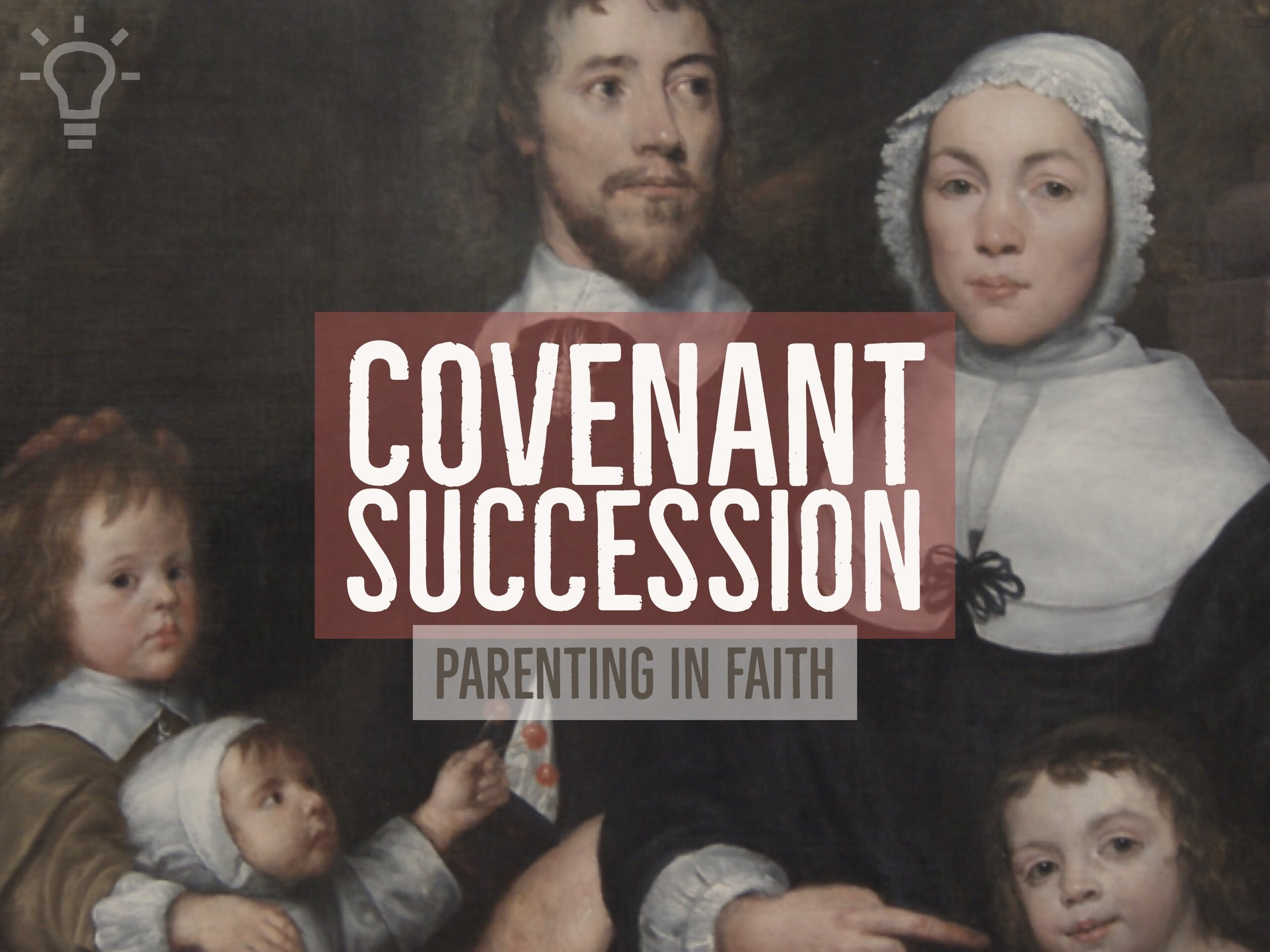Covenant Succession: Parenting In Faith
“Children, obey your parents in the Lord: for this is right. Honour thy father and thy mother; which is the first commandment with promise; that it may be well with thee, and thou mayest live long on the earth. And, ye fathers, provoke not your children to wrath: but bring them up in the nurture and admonition of the Lord.” (Ephesians 6:1-4)
The words “covenant nurture” make my heart sing, and for good reason.
I had, for a long period of time, considered the raising of children as Christian parents to be a gamble. While we shower them with all the love we can possibly muster and consider them to be a piece of ourselves wrapped up in another skin, we ought still to keep them at arm’s length. After all, there is no difference between them and any other (pagan) child, internally or externally, save that they belong to us and that might, maybe, hopefully, teeth-grittingly, be of some consideration to the Lord. You just can’t know for sure which way they’ll go (since Proverbs 22:6 is a half-baked promise and would do better with some additions), at least until they tell you themselves: “Well, mom and dad, I’m going this way,” resulting in great sighs of relief, tears and celebration. Then comes the customary public dunking, the applause, possibly even a certificate (conditional upon not needing to repeat the ceremony in the future when “this way” really just sounded like a good idea at the time.)
The doctrine of covenant succession (whether or not I knew it by these terms exactly) drew me to the reformed faith. The language of sonship, of heirs, of family, of promise, of generations, of covenant, stood in stark contrast to casting a lot and hoping it just happens to land in the lap. Nurturing our little ones in the faith rather than herding them towards it.
In the book To You and Your Children: Examining the Biblical Doctrine of Covenant Succession, Benjamin Wickner defines covenant succession as
“[t]he doctrine [that] presents the Scriptural teaching that the children of believers (covenant children) are expected to succeed in the faith of their parents, and this is accomplished through the divinely ordained means of covenant nurture.” (xix)
The language of expectation here is vital. We can be tempted to make expectation a sin (conflating it with haughty presumption), and neglect the great promise given to us by our Lord to be a God to us and to our children (Genesis 17:7, Acts 2:39). We baptize our babies not because they are regenerate, but because they are born into the covenant. They are worthy recipients of the sacrament that signifies and seals “our ingrafting into Christ, and partaking of the benefits of the covenant of grace, and our engagement to be the Lord’s.” (WSC 94) We are to raise them, then, in the nurture and admonition of the Lord, as members of the church, commanding them to the keep the way of the Lord by doing righteousness and justice (cf. Genesis 18:19). To neglect that responsibility is to transgress the conditions of the covenant extended to us in grace. Robert Rayburn writes:
“The covenant that embraces our children is the covenant of grace. As we would expect, however, conditions are attached to the fulfillment of this promise along the way. God’s promises in the Bible are, almost without exception, condition-laden. It would seem, therefore, more faithful to the teaching of the Bible simply to say that the promises of the covenant hold for those who meet the conditions attached to them.” (13)
To some, this might smack of legalism. To others it may tempt them to moralism. However, our responsibility as parents to nurture our children, to encourage them to live by faith and repentance, is nothing to punt on. Our actions have very real consequences, and likewise our inaction:
“...covenant succession merely applies the biblical teaching that our conduct as parents has real consequences and is instrumental according to the covenant promise.” (Wickner, xx)
Parental nurture of covenant children is a means or instrument of laying hold of those glorious covenant promises (generations of faithful babies). Yet, and this is important, it is not our effort alone that yields the fruit:
“Divine grace does not abolish conditions; rather, it sees to their fulfillment. Grace is necessary precisely because conditions must be fulfilled.” (Rayburn, 15)
Our Lord’s gracious condescension makes our effort to nurture and shepherd our children effective. Rather than despair at the possibility of our child’s rebellion, rather than looking at them or thinking of them (God help us) as “vipers in diapers”, or of placing our trust in every pragmatic solution offered us according to the wisdom of the age, we can have confidence in the Triune God to make good on His promises. We can have confidence because He has made good on His promises. We can expect that our children will succeed us in the faith, because He has promised that they will.

